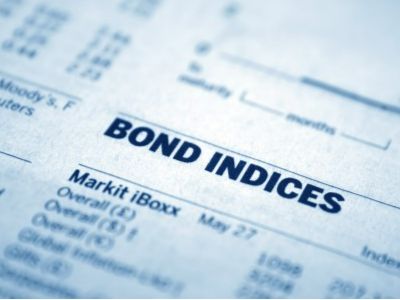Jingshun: The Federal Reserve is about to cut interest rates, taking defensive measures is a wise move.
2024-09-18 07:18
Zhao Yaoting, market strategist at Invesco, expressed that in this round of rate cuts, he is more inclined towards a defensive stance and is overweight in fixed income rather than stocks.
Zhao Yaoting, the market strategist for Schroders Asia-Pacific, said that in this round of interest rate cuts, he tends to take a defensive stance and is overweight fixed income rather than stocks. He mentioned that by observing past interest rate cut cycles, he studies other assets that may perform well during the Federal Reserve's interest rate cut cycle. In terms of stocks, value and defensive assets such as healthcare and essential consumer goods may perform well, similar to previous interest rate cut cycles. He believes that the bear market in technology stocks may continue until further proof of the productivity gains brought by artificial intelligence.
Recent economic data from the United States and China indicates that both economies are heading towards weakness - therefore, a defensive approach should be taken, reducing cyclical assets. Although the softening growth of the world's largest economy may neutralize the benefits of loose policies, emerging markets and international assets tend to benefit from the Federal Reserve's interest rate cut cycle. Therefore, in terms of stocks, Zhao Yaoting believes that defensive stocks such as value stocks, healthcare, and essential consumer goods are likely to perform well in line with previous interest rate cut cycles.
The recent market fluctuations reflect investors' concerns about whether the Federal Reserve's first interest rate cut to prevent an economic downturn would be too small or too late. Although it is expected that the Federal Reserve will cut the benchmark interest rate next week, the deteriorating labor market data may provide the Federal Reserve with an opportunity to cut interest rates by more than 25 basis points next week. However, he believes that the possibility of a rate cut of more than 25 basis points next week is unlikely because significant rate cuts leading up to the US elections could lead to accusations of attempting to influence election results and falling behind in reducing interest rates.
Zhao Yaoting believes that despite experiencing a period of aggressive tightening, the United States will be able to avoid an economic downturn. The last time the Federal Reserve was able to raise interest rates and avoid an economic downturn was during the 1995 tightening cycle. Although history does not necessarily repeat itself, it often rhymes, so lessons can be learned from studying what happened in the market during the 1996 Federal Reserve interest rate cut.
In the six months after the Federal Reserve started cutting interest rates on July 6, 1995, the S&P 500 rose by 11.32%. Value stocks performed slightly better than growth stocks, with the healthcare sector performing the best. In the six months after the Fed started cutting interest rates, international markets slightly underperformed US markets, while bonds recorded steady gains.
Overall, the returns in the following six months were more moderate, which may be attributed to the fact that the loose period was very brief and the rate cut was small, only 75 basis points.
The pulse and the second six months of asset performance after the Federal Reserve began easing policy in 1995-1996
Source: Bloomberg, as of September 3, 2024.
The current trading prices of the US stock market are higher than their historical average valuation levels, perhaps due to digesting the upcoming interest rate cut cycle. Therefore, he believes that the stock market will not see a significant increase similar to the 1996 interest rate cut cycle.
For stock investors, deploying more defensive stocks is also a wise move. Similar to the 1995 cycle, during this easing cycle, it is expected that defensive stocks such as healthcare and value stocks will outperform growth stocks.
Although the strong profits made by the largest AI chip manufacturers have failed to stimulate the market, the AI frenzy seems to have stalled. The market is likely to adopt a wait-and-see attitude towards AI, especially regarding whether it can achieve a breakthrough in productivity.
While the Federal Reserve's interest rate cut is likely to help ease market tensions and boost local currencies and risk assets in emerging markets, the positive effects may be offset by the weak economic growth in China and the United States. Overall, although maintaining an optimistic view, it is expected that the US economy will slow down in the coming quarters. Despite the cooling of the US economy, other major economies have not taken over the growth baton.
The upcoming interest rate cut cycle in the United States is likely to be interrupted due to anti-inflationary forces and weak growth. Continuous interest rate cuts, moderate energy prices, and a softening US dollar should prevent the US economy from recession. However, policy uncertainty may exacerbate, especially before the US presidential election, which may mean that companies delay capital expenditure and investment.
In this environment, he continues to believe that taking a defensive deployment is a wise move.
Two Saudi investment companies are set to launch a Hong Kong Stock Exchange Traded Fund (ETF), expected to raise nearly $1 billion in capital.
Schroder Investment: It is necessary to adopt multiple sources of income in the financial market to supplement credit and high dividend yield as the market is tense and unstable.
RECOMMEND

AMAC: In January, 137 new asset-backed special plans were filed, with a total scale of 1122.64 billion yuan.
26/02/2025

Schroder Investment: Investors should consider allocating funds to securitized credit and insurance-linked securities.
26/02/2025

Reuss County Asset Annual Reflection: Policy Tipping Point is very clear. The semiconductor industry in 2025 is a game for the brave.
26/02/2025


